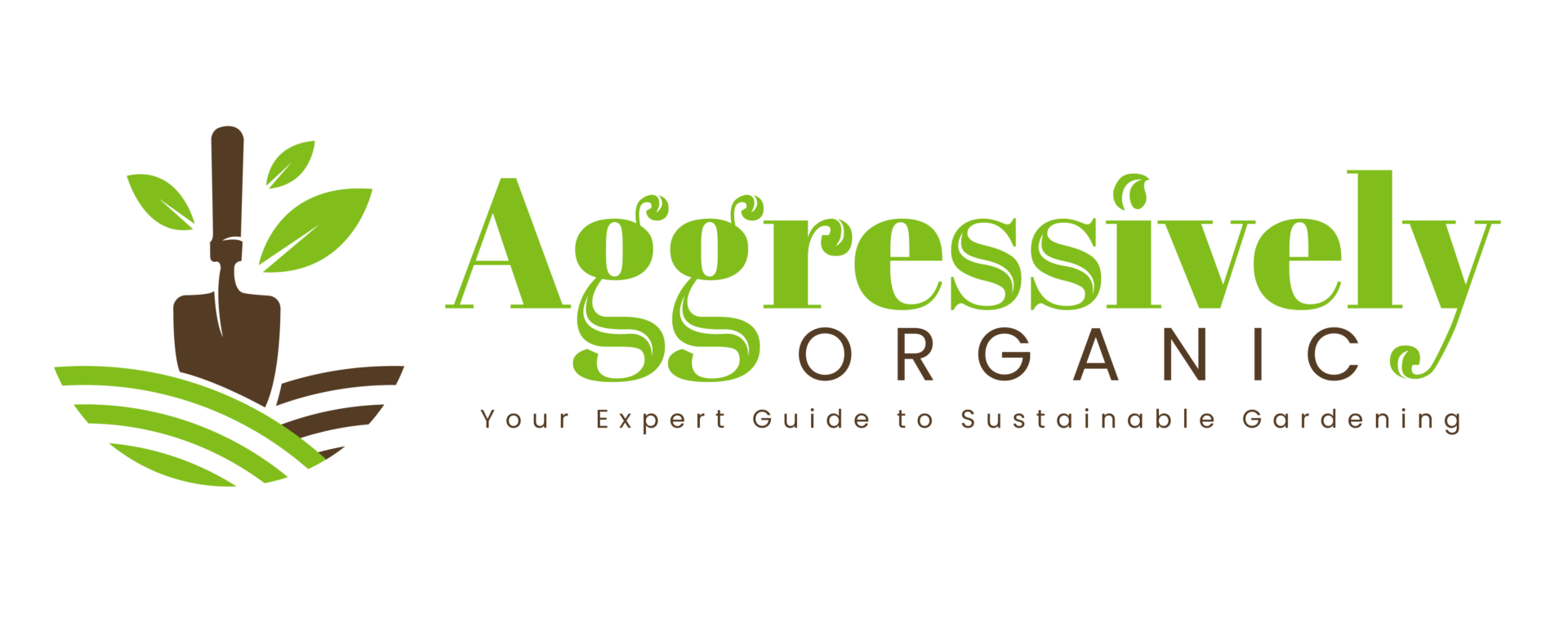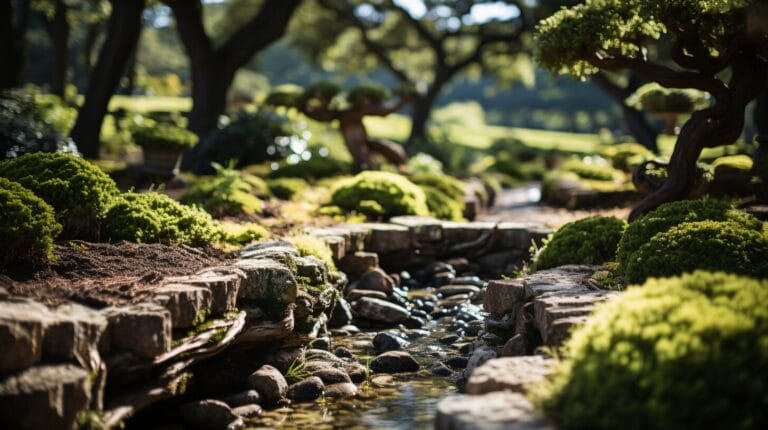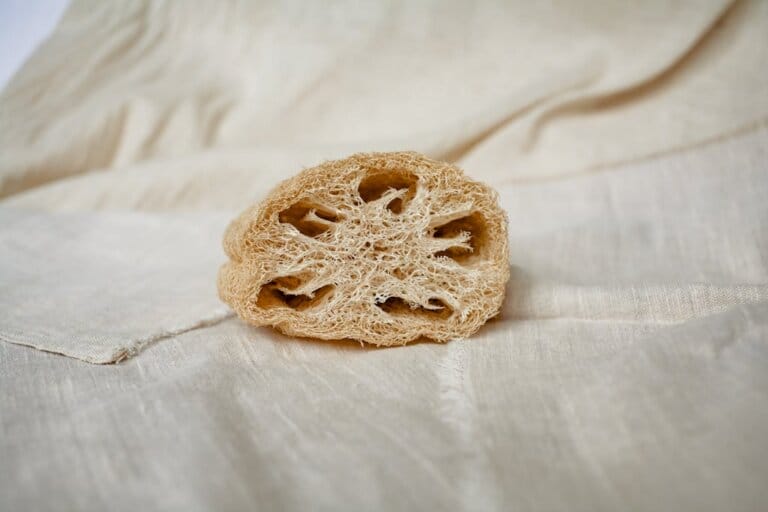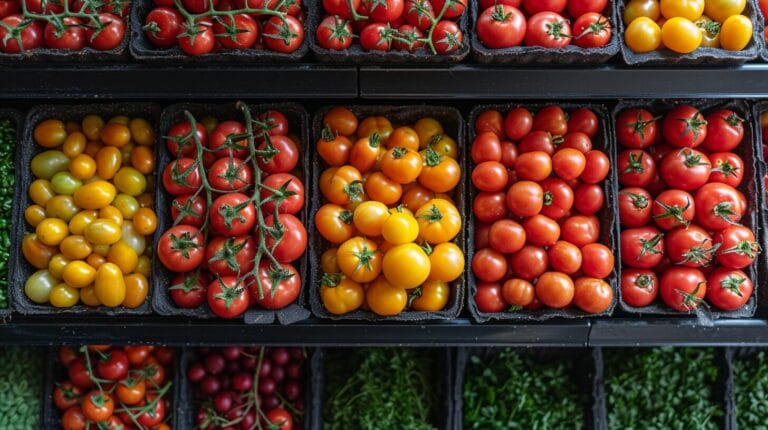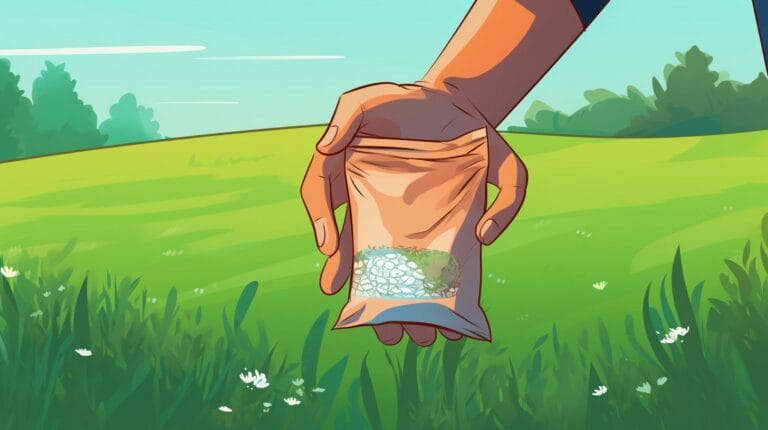Is Galvanized Steel Safe for Vegetable Garden? An In-depth Look
The question “Can galvanized steel be safely used in a vegetable garden?” often crosses my mind. It’s a concern that is also commonly held by many garden enthusiasts.
So, let’s delve into this issue together! We’ll examine the safety of zinc-coated steel for our plants and health, compare it with wooden raised beds, and discuss how to use it effectively.
Let’s cultivate new knowledge as we go through this topic!
Key Takeaways
- Galvanized steel is popular for raised garden beds due to its durability and longevity.
- The zinc coating on steel prevents rusting and corrosion, making it safe for use in gardens.
- It does not release harmful chemicals into the soil, making it safe for growing vegetables.
- While small amounts of zinc seeping from steel are typically not harmful, excessive levels can harm plants.
What Does it Mean to Use Galvanized Steel in Your Vegetable Garden?

I’ve always been curious about using galvanized steel in gardening, specifically for raised beds. Understanding why many gardeners prefer this material and how it interacts with soil and plants is intriguing.
I’m excited to explore what it is, why it’s a top choice for raised bed gardening, and examine its relationship with our garden’s ecosystem.
The Basics: What is Galvanized Steel?
You’re probably wondering, what’s galvanized steel? It’s essentially iron or steel that’s been coated in a layer of zinc to prevent rusting. This coating of galvanized metal protects the underlying steel from corrosion.
Understanding what it is allows you to appreciate its durability. The zinc not only safeguards but also enhances the longevity and quality of your garden infrastructure.
Why Gardeners Choose Galvanized Steel for Raised Beds
The durability and corrosion resistance make this material a top choice for raised beds in horticulture. Here’s why gardeners choose zinc-coated steel for raised beds:
- Galvanized steel raised beds are becoming trendy.
- The advantages of using it include longevity.
- They’re robust against pests.
- Metal-raised beds are becoming popular due to low maintenance requirements.
- Raised beds are becoming essential, and it tops the list.
How Galvanized Steel Interacts with Soil and Plants
This durable material doesn’t release harmful chemicals when interacting with soil and plants, ensuring you’re growing your greens in a safe environment. Galvanized steel garden beds with their zinc coating are absolutely safe for gardens.
| Galvanized Steel Feature | Influence on Garden |
| Corrosion Resistance | The zinc coating on galvanized steel provides a protective layer that prevents rust and corrosion, which is essential for maintaining the integrity of the structure of raised garden beds. |
| Zinc Leaching | Small amounts of zinc seeping from the steel are typically not harmful and can even be beneficial as zinc is a necessary micronutrient for plants. However, excessive levels of zinc can be detrimental to plants. |
| Durability | Galvanized steel is incredibly durable and can withstand harsh weather conditions, making it ideal for outdoor use in garden beds. |
| Heat Resistance | The zinc coating can reflect the sun’s rays, helping to prevent the soil from overheating during hot summer months. |
| Cost-Effective | Galvanized steel is a relatively affordable material compared to other options like cedar or composite materials, making it a cost-effective choice for raised garden beds. |
Is Galvanized Steel Safe for Vegetable Gardens And Ultimately, Your Health?

Today, I will delve into a more detailed analysis of zinc-coated steel and its impact on our gardens. We’ll start by discussing the role of zinc in steel, weighing up its benefits against potential risks. Then, we’ll explore whether or not this material might leach harmful substances into our soil.
Lastly, we’ll look at the long-term implications of using such materials in our gardens – an important topic for those who want to ensure their sustainable and safe gardening practices.
The Role of Zinc in Galvanized Steel: Benefits and Potential Risks
You’re probably wondering about the role of zinc in steel and its benefits and potential risks for your garden.
- Zinc coats the steel, providing corrosion resistance.
- It’s a guard against harsh weather.
It can leach into the soil, and some plants are sensitive to high zinc levels.
Yet, using it is generally safe.
Does Galvanized Steel Leach Harmful Materials into the Soil?
It’s crucial to consider if the materials you’re using for your landscaping projects could potentially leach harmful substances into the soil.
If you’re utilizing galvanized steel in your garden, be aware it can leach zinc. While typically not harmful in small amounts, excessive zinc can be detrimental.
Understanding this helps ensure you don’t unknowingly introduce harmful materials into your soil.
Long-Term Impacts of Using Galvanized Steel in Vegetable Gardens
Having established that zinc-coated steel doesn’t immediately leach into the soil, let’s discuss its long-term impacts on raised garden beds. I’ve considered several factors to determine the safety of growing vegetables in galvanized material.
Firstly, I’ve looked at the durability of it over decades. Secondly, I’ve examined its potential impact on soil fertility. Additionally, I’ve assessed its potential to contaminate crops and its effects on plant health. Lastly, I’ve considered the environmental implications of using it.
This exploration is crucial for those looking for the right material for their raised garden beds.
Galvanized Steel versus Wooden Raised Beds: A Comparative Analysis

In our next discussion, I’ll be delving into the durability and longevity of galvanized steel elevated garden plots compared to their wooden counterparts.
I’m eager to provide an overview and comparison of these two popular choices for raised bed gardening.
We’ll also evaluate the cost-effectiveness and sustainability of different materials, giving you insight into which option might best suit your needs.
The Durability and Longevity of Galvanized Steel Raised Beds
You’ll find that galvanized steel elevated garden plots are incredibly durable and can last many years with minimal maintenance. They offer:
- Unmatched durability and longevity
- Safeness for gardens
- Resistance to rust and corrosion
- Easy assembly and disassembly
- Aesthetic appeal with a sleek, modern look
Using these makes it clear: It is safe for your raised garden.
Wooden Raised Beds: An Overview and Comparison
Let’s focus on wooden raised beds and how they stack against other materials.
Wood is versatile as a material for raised gardens, but its longevity can be an issue. Comparing types of raised beds reveals that while wooden ones may not last as long as galvanized steel, their warm aesthetic often makes them a popular choice in raised bed gardening.
Evaluating the Cost-Effectiveness and Sustainability of Different Materials
Stepping away from wooden beds, let’s dive into evaluating the cost-effectiveness and sustainability of different materials. Specifically:
- Is galvanized steel safe for garden use?
- How do costs compare?
- What about the longevity of zinc-coated steel versus wood?
- Does it meet sustainability criteria?
- Are products made from zinc-coated steel generally safe for gardening?
Together, we’ll master this knowledge to make informed decisions.
Ensuring the Safe Use of Galvanized Steel in Your Raised Vegetable Garden

As a gardening enthusiast, I’ve found that there’s more to setting up galvanized steel elevated garden plots than meets the eye. It’s not just about the setup; it’s equally vital to regularly maintain and monitor your soil and plant’s health. But what do you do when things go south?
Recognizing potential issues early on is key, so let’s dive into when to consider alternatives for your raised garden beds.
Best Practices for Setting up Galvanized Steel Raised Beds
You’ll need to ensure that the steel doesn’t come into direct contact with your plants to prevent contamination. Here are the best practices for setting up galvanized steel planters:
- Choose a well-drained, sunny location
- Ensure the bed is level
- Install a barrier between soil and steel
- Use high-quality garden soil
- Regularly monitor pH levels
Maintaining and Monitoring the Health of Your Soil and Plants
Keeping a close eye on the health of your soil and plants in a raised bed setup is crucial. I often check the soil in my galvanized steel-raised garden and observe how well my vegetables grow. Here’s what I do:
| Task | Frequency | Benefit |
| Soil pH test | Monthly | Maintain balance |
| Water level check | Daily | Prevent over/under watering |
| Plant growth observation | Weekly | Early detection issues |
| Pest Infection | Bi-weekly | Timely pest control |
| Fertilizer application review | Monthly | Maintain nutrient levels |
Now, let’s discuss when to consider alternatives: signs of potential issues.
When to Consider Alternatives: Signs of Potential Issues
Leaving the care of soil and plants, let’s dive into when it might not be safe to plant vegetables in galvanized steel gardens. Watch for signs of potential issues like yellowing leaves, stunted growth, excessively acidic soil, poor yield, and unhealthy acid-loving plants. These could indicate problems with your galvanized setup.
Now, let’s understand ‘the green thumb’s guide to the benefits of zinc-coated steel elevated garden plots.’
Can Using Galvanized Metal in Raised Garden Beds Help Prevent Basil Plants from Wilting?
Using galvanized metal in raised garden beds may assist in treating wilted basil leaves. The zinc coating on galvanized metal resists rust and corrosion, offering a durable and long-lasting garden bed. This can help ensure adequate water drainage and prevent waterlogged soil, thus reducing the risk of basil plants wilting.
The Green Thumb’s Guide to the Benefits of Galvanized Steel Raised Garden Beds

In my gardening journey, I’ve discovered the undeniable charm and adaptability of galvanized steel beds that blend seamlessly with any garden layout.
Through experience, I’ve learned how this versatile material plays a crucial role in managing gardens efficiently by offering durability and ease of maintenance.
Furthermore, it’s noteworthy to discuss how utilizing zinc-coated steel contributes to sustainable gardening practices by reducing the need for frequent replacements and thus minimizing waste.
The Aesthetic Appeal and Versatility of Galvanized Steel Beds
Galvanized steel beds aren’t just safe for your garden; they’re also incredibly versatile and visually striking. Imagine the sleek metallic shine of it. Picture rows of lush greenery framed in sturdy steel. Consider the aesthetic appeal in contrast to traditional wooden planters. Appreciate their versatility in adapting to various garden layouts. And, of course, enjoy the peace of mind knowing they’re safe for your veggies. With zinc-coated steel beds, you can truly have mastery over your gardening.
The Role of Galvanized Steel in Efficient Garden Management
Moving beyond aesthetics, let’s dive into the role of galvanized steel in efficient garden management.
I’ve found that zinc-coated steel raised garden beds are not just visually pleasing but also safe for your garden.
Zinc-coated steel for raised or metal beds can drastically enhance your gardening efficiency.
Now, let’s look at how this material contributes to sustainable gardening practices.
Galvanized Steel and Its Contribution to Sustainable Gardening
You’ll discover how galvanized steel significantly contributes to eco-friendly gardening practices.
- Its durability ensures a long life for your garden structures.
- It’s safe for use and free from toxic elements that could harm your plants.
- Galvanized steel can be recycled, embodying sustainable gardening principles.
- It provides robust support for climbing vegetables.
- The shiny surface deters pests.
That’s the power of it and its contribution to sustainable gardening.
Frequently Asked Questions
What Is the Process of Galvanizing Steel?
In galvanizing steel, I first clean the steel to remove any impurities. Then, I dip it into molten zinc, which forms a protective layer against rust when it cools and hardens.
How Does Galvanized Steel Affect the Ph Level of the Soil in the Garden?
In my experience, galvanized steel doesn’t significantly affect the pH level of garden soil. It’s coated in zinc, which minimally seeps into the soil and is an essential plant micronutrient.
Are There Any Alternatives to Galvanized Steel for Use in a Vegetable Garden?
Yes, there are alternatives to galvanized steel for your garden. You can use materials like wood, brick, or plastic. They won’t affect your soil’s pH level and are safe for growing veggies, too.
How Long Does Galvanized Steel Typically Last in a Garden Setting Before It Needs to Be Replaced?
In my experience, galvanized steel can last up to 50 years in a garden setting before needing replacement. Its durability depends on factors like soil conditions and weather exposure, among other things.
Can Galvanized Steel Be Recycled or Repurposed Once It’s No Longer Fit for Use in the Garden?
Absolutely, I can recycle or repurpose my old galvanized steel once it’s not fit for garden use. It’s a sustainable option, and many recycling centers accept it, making the process quite straightforward for me.
Conclusion
In conclusion, using galvanized steel for your garden is a safe and durable choice. It not only lasts longer than wood, but it also doesn’t leach harmful chemicals into the soil.
Just make sure you’re using newer galvanized products to avoid zinc runoff.
So go ahead, and give your green thumb a workout with galvanized steel planters – they’re truly a fantastic addition to any veggie garden!
